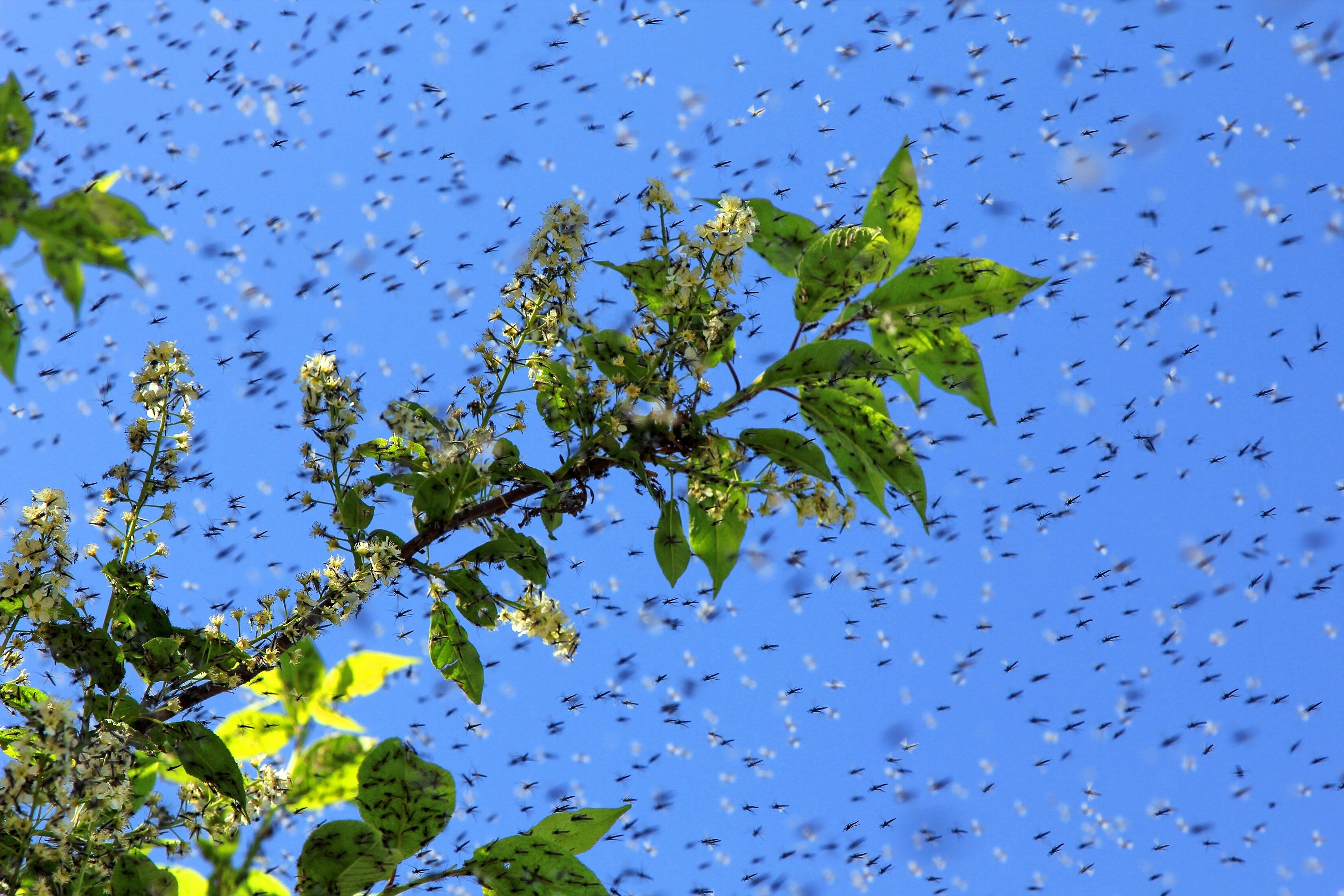
Landscape Genetics in the Control of Anopheles gambiae
Lead: Professor Martin Donnelly & Dr David Weetman
(Wellcome Trust Training Fellowship to John Essandoh, University of Cape Coast, Ghana)
Commencing in 2016 this project we will apply restriction-associated DNA (RAD) markers to assess the genetic connectivity of Anopheles gambiae across Ghana and its predictability from patterns of natural and anthropogenically-influenced land use. The specific aim is to understand and predict how mutations causing strong insecticide resistance phenotypes spread, in order to provide information for resistance management.
Patterns and causes of hybridization and impacts for control of Anopheles gambiae and An. coluzzii in Senegambia.
Africa Research Excellence Fund visiting fellowship to Dr El Hadji Niang, Université cheikh Anta Diop (UCAD), Dakar.
This training fellowship during 2016 is investigating how patterns of interspecific gene flow and insecticide resistance vary in an area of high hybridisation between the Anopheles gambiae species pair.
Develop methods for genomic surveillance of infectious disease and identify effective ways to use these new technologies to improve global health.
Project partners: Centre for Genomics and Global Health
This project aims to build on the foundations that have been established for large-scale collaborative genomic epidemiology, by developing innovative methods for monitoring of evolutionary changes in pathogen and vector populations in near real time. Our goal is to enable disease control programmes to maintain surveillance of how pathogens and vectors are changing in response to interventions and, if dangerous changes occur, to act as quickly and effectively as possible. As well as supporting disease control, this approach will generate data of fundamental scientific interest, e.g. about biological interaction between host, pathogen and vector genomes, and how natural selection operates at the level of the whole genome. Malaria will remain our main focus but we will also develop complementary projects on other endemic diseases of the developing world.
Tracking tsetse: applying landscape genetic approaches to guide strategies for eliminating Human African Trypanosomiasis
Project partners: Wellcome Trust, Makerere University
Glossina fuscipes is the most important vector of the trypanosomes which cause Human African Trypanosomiasis (HAT). It is also a member of the eponymous group of riverine tsetse which are restricted to humid habitats fringing rivers and lakes. We hypothesise that this habitat specialisation limits migration between river drainage systems. We propose to sample tsetse along riverine networks in Uganda to test the following hypotheses:-
- Glossina fuscipes populations show localised population structure which is driven by segregation between riverine drainage systems.
2. Within drainage systems, habitat fragmentation has resulted in source: sink population structure with downstream populations seeding transient upstream populations.
Pan African Insecticide Resistance Diagnostics - Recognition, Evaluation And Dissemination (PAIReD READ)
Project partners: Wellcome Trust Sanger Institute, WTSI Oxford, Broad Institute, Boston College
The major goal of this proposal is to revolutionize the application of molecular markers for insecticide resistance detection across the malaria endemic countries of sub-Saharan Africa by providing malaria control program staff with new diagnostics and geographically-calibrated maps that predict the impact of these markers on resistance phenotypes.
This represents a major shift in the way markers are currently applied, which is almost always retrospective, and as a result has had limited impact on decision making to date. This is a major change which requires a major coordinated program of work involving multiple African partners from the outset, in order to generate self-sustaining in-country networks for dissemination. To achieve our aims we exploit the power of whole genome sequencing to identify genes/regulatory regions that are associated with insecticide resistance. We will use a combination of approaches including in silico searches of existing genome data bases, generated via the Wellcome Trust Anopheles gambiae 1000 genomes network, of which we are founder members; large scale collections and resistance screening of malaria mosquitoes in both East and West Africa, in addition to laboratory crossing experiments to identify rare, resistance associated variants, impossible to identify using existing association-study methods.
The impact of insecticide resistance and exposure on Plasmodium infection level and prevalence in the malaria vector Anopheles gambiae
Project partners: Wellcome Trust
In Anopheles gambiae, predominant heritable insecticide resistance mechanisms cause major conformational protein changes, which would be expected to impact physiological performance, including the ability to withstand parasites, because the insecticide targets are essential components of the nervous system. Furthermore, multiple exposures to sublethal doses of insecticide could induce the production of detoxification enzymes in the mosquito, the costs of which affect vector competence possibly by limiting the mosquito’s ability to mount an immune response. The research question of this study is: how do genetic insecticide resistance mechanisms and non-genetic responses to insecticide exposure affect Anopheles gambiae susceptibility to Plasmodium falciparum?